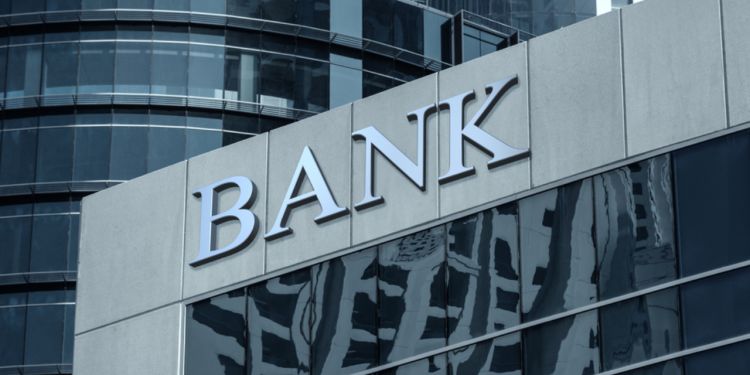
Banks in Austria are regulated at the national level and are known for their high level of security, providing expatriates with a sense of confidence when banking in the country. Austria boasts one of the oldest banking systems in Europe. Once you arrive, opening a local bank account will enable you to make purchases, withdraw cash conveniently as well as receive your salary. Here is what you need to know about the banking system in Austria.
How to open a personal bank account in Austria
Setting up a bank account in Austria is a straightforward process for residents. However, if you're not a resident, it's important to choose a bank that supports non-residents.
Once you've arrived in Austria, opening a personal bank account is easily achievable. Start by researching different banks to find the one that best suits your needs. Then, visit a local branch of the chosen bank to initiate the account opening process. Keep in mind that banking options and associated fees can vary among banks, so it's wise to gather information beforehand.
As an expat, you will typically need to present your passport as identification and provide proof of residency, including a local address. Some banks may also require proof of employment and a residence registration form. The good news is that you don't need to schedule an appointment to open an account. In fact, certain banks even offer the option to open an account online before you arrive in the country.
After completing the necessary paperwork, your account will be opened, and your bank cards will be mailed to your preferred address, usually within a week. Austrian banks also provide online banking services, enabling you to easily set up auto payments and transfer funds at your convenience.
Banking services in Austria
Banks in Austria typically provide various types of services, including a Girokonto (current account), Sparkonto (savings account), Daueraufträge (standing orders), Dispokredit (overdraft facility), and a Bankomatkarte (debit card). If you need a credit card, it's advisable to contact your bank because credit cards are generally not automatically granted when opening a bank account. One advantage of banking in Austria is that student accounts are often offered free of charge.
If you already have an account with an international bank that operates in Austria, you might consider keeping your current bank after relocating. It's worth noting that banking hours can vary, but typically, banks have extended opening hours on Thursdays. In regional areas, banks may close for a lunch hour.
Credit and debit cards in Austria
Once you have opened your bank account, you will receive a debit card, locally known as a "Bankomatkarte." Bank cards in Austria bear the Maestro or VISA Pay logo and can be used for purchases at most retail establishments. However, it's important to note that some smaller businesses may only accept cash. ATMs are widely available throughout the country and accept both Austrian and international bank cards. You can often find ATMs in supermarkets as well. Interestingly, it has become possible to withdraw money at supermarket checkouts too.
It's worth mentioning that when using a bank ATM in Austria that is not associated with your account, fees are not allowed to be charged (this applies to debit cards only). However, once you are abroad, fees will likely apply unless you are fortunate enough to have a branch of your bank in that location.
If you plan to obtain a credit card locally, it is advisable to wait for several months to establish employment and credit history in the country. This will increase your chances of getting approved for a credit card.
Card types in Austria
Different countries have varying regulations when it comes to card types, which can sometimes be confusing. Here's an overview of the card types in Austria:
Debit cards: A regular debit card is linked to your bank account and allows for direct payments and ATM withdrawals. Initially, these cards didn't have a 16-digit number for other payments, such as online shopping. However, in recent years, this has changed, and newer cards now include codes for real-time online payments. Austrian banks offer either Mastercard or VISA as payment options for debit cards. When using a debit card, the money is immediately debited from your account, and you confirm the payment through a TAN (Transaction Authentication Number) or bank app.
Credit cards: VISA and Mastercard are the most common credit cards in Austria. Credit cards have a 16-digit number, an expiration date, and the CVC/CVV card validation code. They are connected to your bank account and can be used for all types of payments, including online purchases. Cash withdrawals are also possible, but fees may apply. Credit cards have a specific credit limit, and once a month, the accumulated amount is deducted from your bank account.
Prepaid cards: Prepaid cards are not very common in Austria but can still be obtained without much difficulty. They are considered highly secure. Prepaid cards can be loaded with a specific value, and the money is immediately debited when making payments. If a prepaid card is lost or stolen, there is minimal risk since it is not connected to your bank account.
Additional information: It's worth noting that you can transfer money from your bank account to your credit card, which can be useful if you have reached the credit limit and need to make payments while abroad, where only your credit card is accepted. To do this, simply inquire with your card provider for the IBAN (International Bank Account Number) associated with your credit card.
Withdraw money in Austria
As mentioned earlier, you can withdraw cash from ATMs all across Austria. They are commonly found in busy areas, supermarkets, banks, and gas stations. Typically, the withdrawal limit is set at €400.00 per day, but you can adjust this limit according to your preferences through online banking. It is recommended to increase the limit temporarily for specific days rather than permanently for security purposes.
For travelers, it's important to note that you can activate your debit card online for a designated period when visiting non-EU countries. This feature, known as Geocontrol, ensures that your card remains secure.
Since the pandemic, card payments have become more prevalent in Austria. As a result, when using debit and credit cards, you can make contactless payments for amounts up to €50 without entering your PIN. After five consecutive contactless transactions, entering the PIN becomes necessary for security reasons.
Inside bank foyers, you can perform various transactions such as depositing small change, transferring money, printing account statements, and making deposits or withdrawals. Some limited services may even be available without a card if you have a designated access code.
Good to know:
In Austria, numbers are typically written with punctuation, such as €1.000,00 (representing one thousand euros).
Opening a business bank account in Austria
If you are setting up your business in Austria, having a valid bank account is essential for creating your invoices. When deciding which bank account to open, it's important to consider the anticipated number of transactions you will have. Some accounts have a slightly higher base account management fee but include a higher number of transactions at no additional cost. Others may have low or no base fees but charge for each individual transaction. It's crucial to gather information in advance and be well-informed about the account options.
Generally, maintaining a checking account in Austria is not expensive, but it's important to note that high-interest rates apply if you overdraw your account. Credit cards nowadays require a PIN for physical payments in shops, restaurants, and other establishments. They often offer additional benefits, such as insurance coverage (including travel insurance) for payments and bookings made using a credit card.
Another option to consider is an account linked to another physical bank account. While you cannot directly withdraw or transfer money from this account, you can manage it through your private or other bank account. This can be a convenient option for everyday life, as you can still receive all payments in this company or savings account. When providing your account details, it is sufficient to state the IBAN (International Bank Account Number), as SWIFT/BIC codes are no longer required within the EU.
Good to know:
If you're self-employed, it's probably best to open a second "company" account. This makes bookkeeping, tax management and organization easier.
The most famous Austrian banks
- Erste Group Bank
- Raiffeisen Bank
- Unicredit Bank Austria
- BAWAG
- Bank99 (it belongs to the Austrian Post)
- Oberbank
Each bank in Austria operates various branches and often provides attractive offers for opening accounts. All of these banks offer online banking services and have their own mobile apps. If you don't require a traditional brick-and-mortar bank, you can opt for a cost-effective online account offered by one of the online banks. With an online account, you can conveniently handle transactions and also receive a debit or credit card for your banking needs.
Given Austria's geographical proximity to Eastern Europe, it's quite common to find Austrian banks having connections and branches in neighboring countries. Therefore, it wouldn't be surprising to come across Austrian banks operating in those regions as well. This facilitates banking services and connections between countries in the area.
Payment in Austria
In Austria, it is common to be able to pay with cards or virtual cards on mobile phones at most shops and restaurants. However, there are still some smaller establishments such as cafes, restaurants, and small shops that only accept cash payments. It is customary to leave a tip of around 10% in restaurants and bars in Austria and if you only have one ATM card with you, it's not a problem. When making a payment, you can round up the amount and the waitstaff will receive the additional amount as a tip. It is also customary to leave a small tip for services such as taxis or hairdressers.
Pay rent for your accommodation in Austria is typically made through bank transfers, and it is not common to pay the main rent in cash.
In general, bills such as telephone bills, social security contributions for self-employed individuals, electricity bills, etc., are usually received by mail or email, based on personal preference. Along with the bill, a payment slip ("Zahlschein") is provided, which can be physically deposited or scanned with a QR code for online banking. It is worth noting that transfers within Austria are expected to be credited to the recipient's bank account within one working day, so there is no excuse for delays in payments by stating, "I've already transferred it a few days ago."
How to avoid banking scams in Austria?
Regarding banks and financial service providers, cyber fraud is a significant concern. It is crucial never to disclose sensitive information over the phone or through email and to ensure that all online payments are encrypted. It's common to receive fraudulent emails and SMS messages that appear to be from your bank. Before opening any links or providing any information, it is advisable to check the official bank website or contact the branch office in Austria for verification.
In recent months, there have been cases of individuals receiving text messages claiming to be from distressed relatives in urgent need of money. In such situations, it's important to first call your relatives directly and verify the situation. Avoid transferring money to IBAN codes that do not start with "AT" in these circumstances to avoid falling victim to scams.
Staying vigilant and taking precautionary measures can help protect against cyber fraud and scams targeting banking and financial transactions.
Useful links:
We do our best to provide accurate and up to date information. However, if you have noticed any inaccuracies in this article, please let us know in the comments section below.











